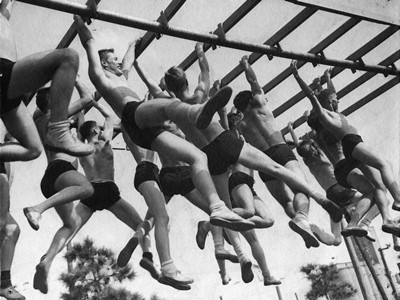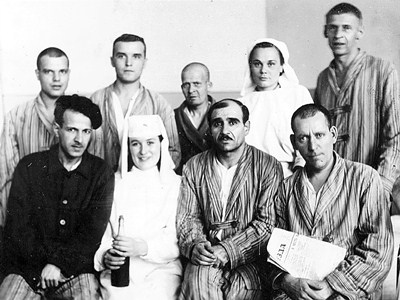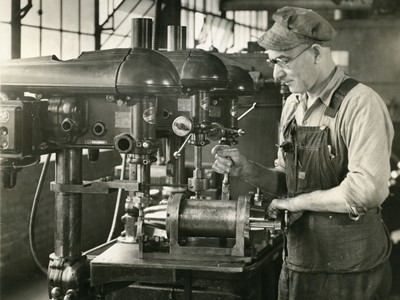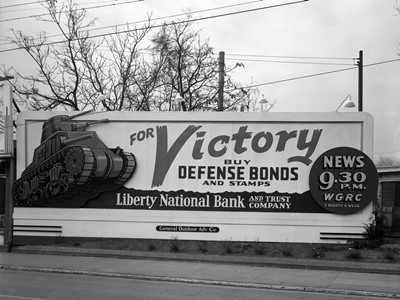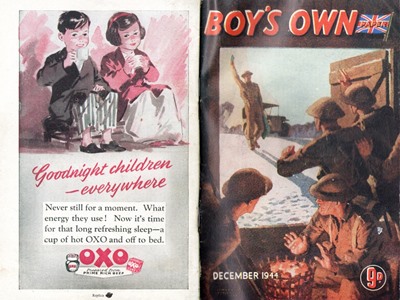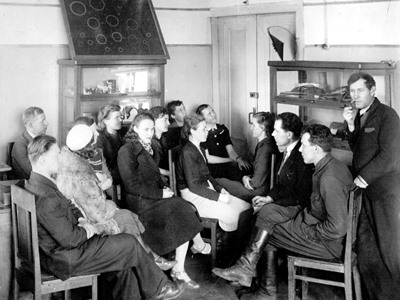The genesis of Oxfam in 1942: opposing the doctrine of ‘Total War’
Maggie Black
By late 1942, after three years of adapting to war-time stringencies, life in Oxford had settled into a pattern that was dull, dark, cold and poorly-fed, but not seriously deprived. Although this beautiful city with its mediaeval buildings was left off German bombing itineraries, life was no picnic. There was strict food rationing, a ‘black-out’ of light from windows and in streets from dusk to dawn, and every non-military man took part in night-watching on College roof-tops and Home Guard action to prepare for German invasion. The only private transport was the ubiquitous, unlit, bicycle.
Although news was limited, Oxford people knew that their travails were mild compared to those endured in heavily bombed cities such as London. Far worse off were people in allied European countries now over-run by Hitler’s armies, many of whom were facing starvation. At that time, there was no accepted idea of ‘neutral’ relief for ‘innocent civilians’ – that women and children, for example, who were in no way complicit in any fighting should be helped to survive its devastating impact. [...]
The country worst-affected by hunger was Greece. After a heroic fight against Italian forces, the Greek army had been forced to capitulate in April 1941 and the King and his government went into exile in London. The British Navy had helped the Greeks, militarily and with food cargoes. Once Greece was in enemy control, food supplies were cut off and a strict blockade imposed. [...] After US President Roosevelt made a direct appeal to Prime Minister Churchill in late 1941, the British finally agreed that International Red Cross relief food cargoes could breach the blockade and be landed at Athens. [...]
The refusal to permit any measure of relief for suffering civilians meant that many liberal-minded Britons did not fully subscribe to the idea of ‘Total War’. Foremost among those who wanted the government to be more sympathetic to the plight of people in other countries were Churchmen, especially Quakers, members of the Society of Friends. In July 1942, there had been a gathering at the Friends’ Meeting House in Oxford where a redoubtable Quaker called Edith Pye, visiting from London, had talked passionately about the horror of hunger in Europe. Pye had devoted a long professional life ‘to the margins of chaos’, to refugees and the war-torn in countries all over the world. In March 1942, she had helped set up a national Famine Relief Committee, whose members included Bishops, University heads, politicians, newspaper editors, and intellectuals of standing. The Committee collected information, put pressure on the government to change their policy on relief, and raised money so that they would be able to send foodstuffs such as milk powder to stricken populations the minute permission was granted. Edith Pye then proceeded to set up support Committees around the country. [...]
In the years until the end of the war, the Famine Relief Committees campaigned through the national press and locally to be allowed to send modest cargoes of provisions for mothers and children to other countries than Greece. [...] But Greece remained the exception. In 1943, the Oxford Committee raised £12,700 for famine relief for Greece. At a special event in the Oxford Town Hall, the cheque was handed over to the London Director of the Greek Red Cross-in-exile, and sent on to the International Red Cross in Geneva as a contribution to its Greek relief programme. With this fund-raising venture, the Oxford Committee had embarked on the kind of action that would characterise its post-War humanitarian activity: fund-raising appeals for European refugees languishing in camps, and victims of wars and natural disasters further afield. While most of the other Committees closed their doors, the Oxford Committee kept going.
Not until the 1960s did the Oxford Committee for Famine Relief become a fully-fledged international relief and development charity, contracting its name to OXFAM. [...]
Displays
How did we win together?
